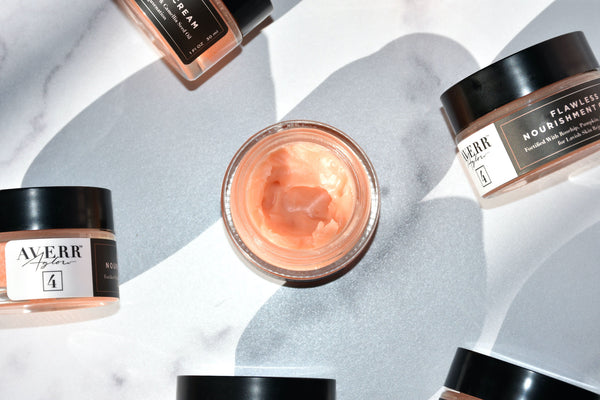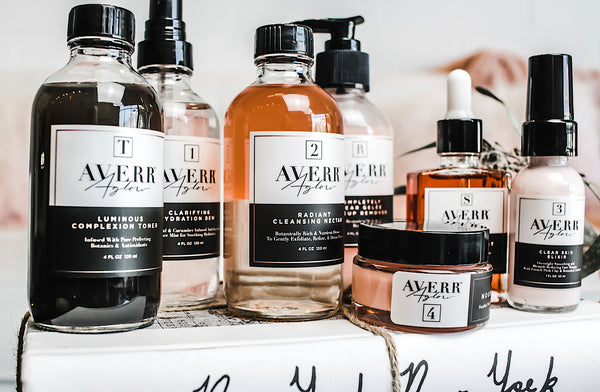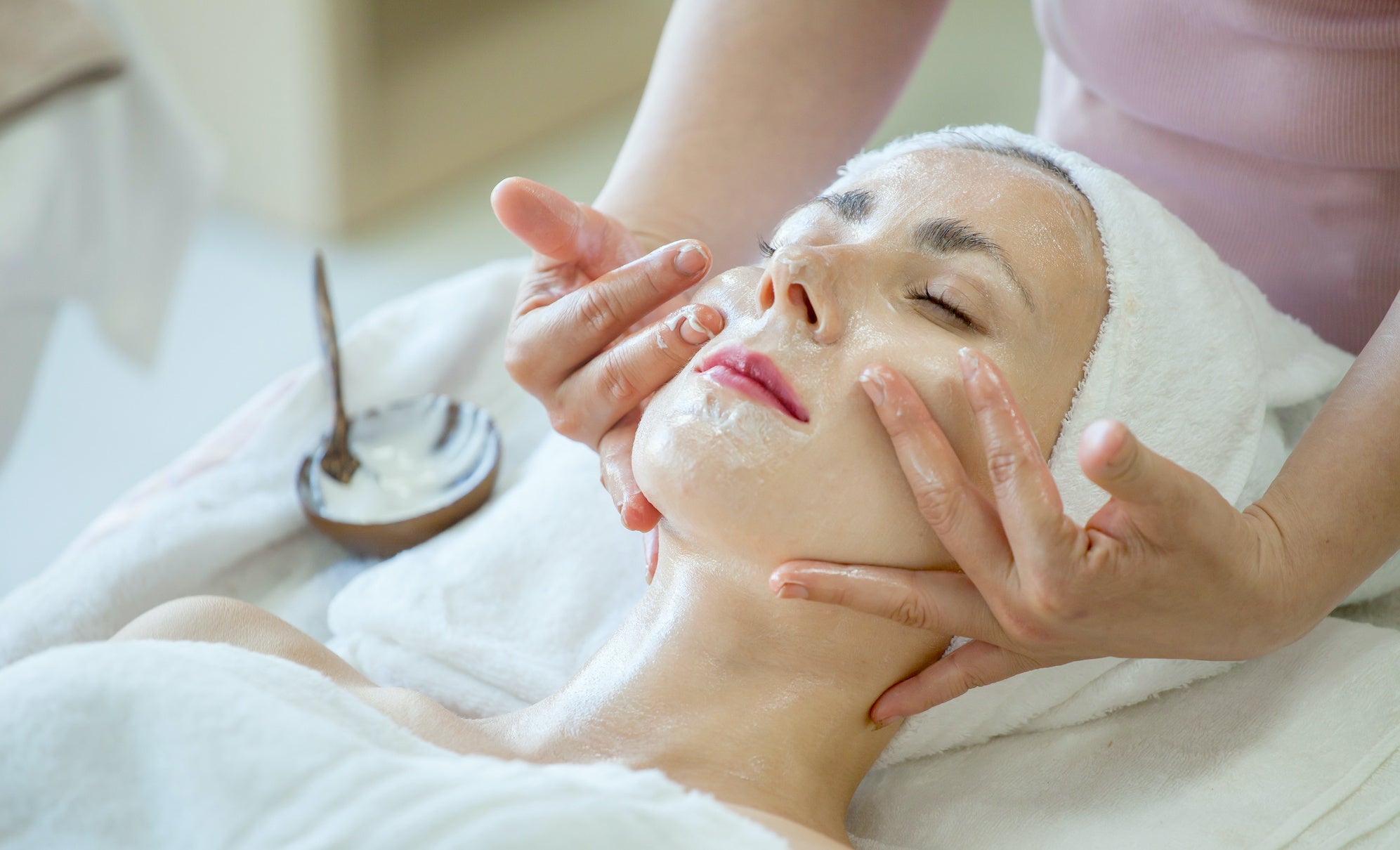
How to Build a Healthy Skin Diet
Here’s the good news: Food isn’t causing your breakout. At least, not directly. It’s not like a person who has perfectly healthy skin eats a piece of pizza and is suddenly plagued with acne for the rest of eternity.
What you eat does influence the processes in your body though, which extends to the health of your skin. Skin is the largest organ in your body and it's usually the first one to show signs that something is imbalanced on the inside.
With the right foods in your diet, you can keep your skin healthy and happy. Keep reading to learn exactly how you can build a healthy skin diet catered to your needs.
1. Identify What Causes Acne
There is still some mystery surrounding the cause of breakouts — like why acne triggers affect some people more than others.
Here’s what we do know. Acne is usually caused by a perfect storm of four factors:
- Inflammation
- An overproduction of skin cells
- Excess sebum (skin oil)
- Bacteria growth
Acne-prone or not, we are all constantly creating new skin cells and shedding the old ones. Your body gets rid of 30,000 to 40,000 skin cells a day! If you look in the mirror, the skin you see will be completely replenished within a month.
If you have acne, your skin is reproducing up to 5 times faster. It’s so fast that your body can’t shed dead cells quickly enough, and they end up getting stuck in your pores.
Prevent pore blockages! Our Illuminating Essence Exfoliating Mask sweeps away dead skin and impurities and deposits nourishing minerals from volcanic ash.

But dead skin cells are just the first step toward Pimpletown. For a full-fledged breakout, you also need excess sebum.
The Problem With Sebum
Just like skin shedding, everyone’s body produces sebum. It's the natural oil that secretes from your pores to create a protective barrier on your skin. Sebum keeps you moisturized and wards off environmental aggressors like pollution.
Your skin needs sebum to stay healthy. But issues arise when your body creates too much.
When there is a sebum surplus, it doesn’t secrete properly onto your skin. Instead, oil gets stuck in your pores along with those dead skin cells. These two together create a clog and close off the opening so that nothing can get out.
This airless, damp environment creates the perfect breeding ground for acne-causing bacteria.
Why You?
We don’t know why some people overproduce skin cells and some people don’t (though scientists suspect that it may be genetic).
But, we do know why people produce too much sebum. Several possible causes could be throwing your skin into oily overdrive.
Sebum is meant to hydrate, right? So if your body thinks that your skin is feeling drier than the Sahara, it’s going to keep producing sebum until it’s satisfied that you are sufficiently moisturized.
But as folks with oily skin know all too well, sometimes your body goes a little overboard and makes more sebum than you need. Before you know it, BAM! You have a breakout.
Most acne medications try to dry up all that sebum to keep it from clogging your pores. That may seem like a good solution, but it’s counterproductive. Suddenly drying out your skin simply tricks your body into producing even more sebum, leaving you oilier than when you began. It’s a never-ending cycle.
The moral of the story: ditch those drying acne products, pronto!
Fighting an oily complexion? Forget harsh or drying acne products. Your skin needs a balancing moisturizer that reassures your skin instead of sending it into panic mode.

That's not all. Excess sebum is also directly triggered by hormones like insulin, cortisol, IGF-1, and androgens. When those hormone levels are raised, your sebum goes a little nutso.
And can you guess what affects those hormone levels?
Hint: It rhymes with riot.
That's right, it's your diet!
2. Balance Insulin With Low GI Options
We joke about being "hormonal" like it's bad, but in reality, there's no escaping hormones at any time of the month. Everybody is hormonal every single day.
Dozens of functions in your body rely on balanced hormones. Growth, fertility, weight, sleep, mood, skin, hair, stress... all the things have to do with your hormones, one way or another.
When it comes to diet, insulin is one of the most relevant hormones. It controls your blood sugar and can affect your sebum levels, boosting oil production and directly impacting your acne breakouts.
Low Glycemic Diets for Insulin
Many people who are concerned about their insulin levels, including acne sufferers, resort to a low glycemic diet.
A low glycemic diet is based on the glycemic index. This index ranks foods with carbohydrates and sugars based on how quickly the body digests them and how they impact your blood sugar levels.
Foods with a lower GI ranking digest more slowly, which helps keep your blood sugar levels stable.
Low GI foods:
- Sweet potatoes
- Whole wheat bread
- Brown or wild rice
- Legumes
- Oats, barley, and other whole grains
- Some fruits (enjoy sugar-dense fruits like watermelon, pineapple, and bananas in moderation)
Foods with higher GI rankings do the opposite, making your blood sugar levels (and complexion) go wild.
High GI suspects to beware:
- Candy and desserts
- White bread
- Pastries
- Pasta
- White rice
- White potatoes
- Pre-made sauces and salad dressings (the added sugar is out of control)
It may sound like a lot to ask, but prioritizing low-GI foods and moderating or avoiding high-GI ones can certainly help decrease your insulin levels and prevent an excess of acne-triggering sebum.
Trying to build a diet to support your skin journey? Don't miss our list of the 99 Best Foods for Clear Skin
3. Include Foods to Manage Inflammation
Inflammation is your body’s favorite defense mechanism. It leaps to the rescue in the face of injury or infection and tells your body to fight off invaders and heal damage.
But just like sebum gets carried away sometimes, inflammation can too. Chronic inflammation causes all kinds of problems, like heart disease and stroke. But what does it mean for your skin?
Inflammation is present at every step of the acne-forming process. When your pores get clogged, inflammation tries to save the day and help heal the infection. It shows up as a swollen red bump at the site of your pore — commonly known as a pimple.
To make matters worse, all that inflammation can cause pressure to build up inside your clogged pore. This increased pressure can rupture the wall of your pore, releasing bacteria into the layers of your skin.
Pore ruptures lead to more severe types of acne like nodules and cysts.
While inflammation is a necessary bodily function, you can help control unneeded and excess inflammation with your diet. That means incorporating foods that reduce inflammation while avoiding foods that exacerbate it.

4. Try Gut Healthy Goodies
Pop quiz! What part of your body is commonly referred to as your "second brain?"
Give up?
It’s your gut!
Your gut is where food is digested. It’s full of bacteria to break down and metabolize your food, but it’s also home to 80% of your immune system and produces 95% of your serotonin (the feel-good hormone). Your gut plays an important role in the health of your body, and that includes the health of your skin.
As soon as the food you’re eating makes it into your body, it starts breaking down and being used. Your body takes that sandwich you scarfed for lunch and digests it into energy, vitamins, and minerals that help you build muscle, strong bones, and healthy skin.
Your microbiome, aka the environment of good bacteria in your gut, is in charge of digesting your food. But if that bacteria is out of balance, it can leave you vulnerable to some serious issues. For example...
Leaky Gut
A leaky gut is when the lining of your small intestine becomes compromised and lets toxins, bacteria, undigested proteins, and waste into the bloodstream. Once in your bloodstream, those toxins trigger inflammation.
Now that you’ve got bacteria and inflammation due to a leaky gut, just add trapped skin cells and excess sebum for a full-on acne fiesta.
Several factors could lead to unbalanced gut bacteria and a leaky gut — such as consuming heavily processed foods full of chemicals, additives, dyes, and preservatives. Because these additives aren't food, they can disrupt your digestive system and cause inflammation.
The best way to tell whether a leaky gut is a problem for you is to check with your doctor. They can run several lab tests to give you more insight into what’s going on with your insides.
Promoting Gut Health
Whether or not a leaky gut is the cause of your acne, it’s always a good idea to keep your gut healthy. After all, it affects how you look, think, and function.
A great start is to avoid processed food. Coincidentally, that goes for healthy skin too!
Instead of running to the vending machine to curb your midday munchies, pack a healthy (unprocessed) snack from home.
Fermented foods and probiotics are also essential for a healthy gut. You can implement a probiotic supplement to make things easy on yourself or you can work yogurt into your daily menu.
Sauerkraut, kimchi, and kefir pack the double whammy of being probiotic AND fermented, so bonus points if you can slide those into your meal plan!
A balance of good bacteria is also important on the surface of your skin! That's why our products are specially crafted to protect your skin's microbiome.

5. Drink More Water
Every beauty-themed magazine since you were 13 has advised you to drink more water for clear, healthy skin. They weren’t wrong.
Studies show that drinking enough water keeps skin hydrated and helps purge toxins through your sweat.
Earlier we mentioned insulin, a hormone that helps regulate your blood sugar levels. When the levels spike, so does your oil production, contributing to clogged pores.
It turns out that water affects your body’s ability to use insulin efficiently. If you’re dehydrated, your insulin can increase, which means your sebum levels rise too.
So, how much water is enough?
Contrary to popular belief, 8 glasses a day isn’t the right amount for everyone. The amount of water you need is based on how much you weigh. You should be drinking half of your body weight in ounces per day, and more if you exercise.
Get to glugging!
Let’s Review
Whew, that was a lot! Looking for the TL;DR? Here's a quick breakdown of diet and acne.
If you have breakouts, it’s because your body overproduces oil and skin cells, which mix and clog your pores.
Generally, this happens in response to your hormone levels, which are affected by your diet and water consumption. Diet may also contribute to your excess sebum through an imbalance of bacteria in your gut.
Inflammation also contributes to your breakouts, showing up to make them extra red and swollen. It can get even worse if you overindulge in certain inflammation-causing foods.
Bottom line?
Diet plays a starring role in acne formation. So adding a diet clean-up to your skincare routine can help clear up your skin, too!





